Are you a vegetarian trying to eat fewer carbs? Or perhaps you’re just cutting back on your intake for general health reasons. Either way, high-protein and low-carb vegetarian foods are an excellent option for you. And while these foods may not be the first thing that comes to mind when you think about eating habits – most people associate vegetarians with eating lots of vegetables and grains.
But in reality, plant protein from things like legumes, tofu and nuts is actually the meat of choice for many vegetarians! There is a variety of different high-protein and low-carb vegetarian foods that can help support your balanced diet. In this article, we’ll introduce you to some of the best ones and explain why they’re so beneficial.
What are High-Protein, Low-Carb Vegetarian Foods?
This diet places emphasis on high-protein and low-carb vegetarian foods. The high-protein part of this equation ensures you get enough protein in your diet. And the low-carb part is there to help you avoid going overboard on the carbs. Generally, vegetarian diets tend to be lower in protein than non-vegetarian diets. This is because meat and fish are two foods that are rich in protein.
Vegetarians don’t eat these, so they miss out on a lot of the protein that meat-eaters get. The benefits of protein are well known to all individuals, and the lack of it will indeed affect your growth and muscle building. Similarly, many vegetarian foods are higher in carbs than non-vegetarian foods. This is especially true of grains, legumes and vegetables. So let’s get down to a list of foods so you can be gym-ready within minutes.
List of High-Protein and Low-Carb Vegetarian Foods
1. Nuts
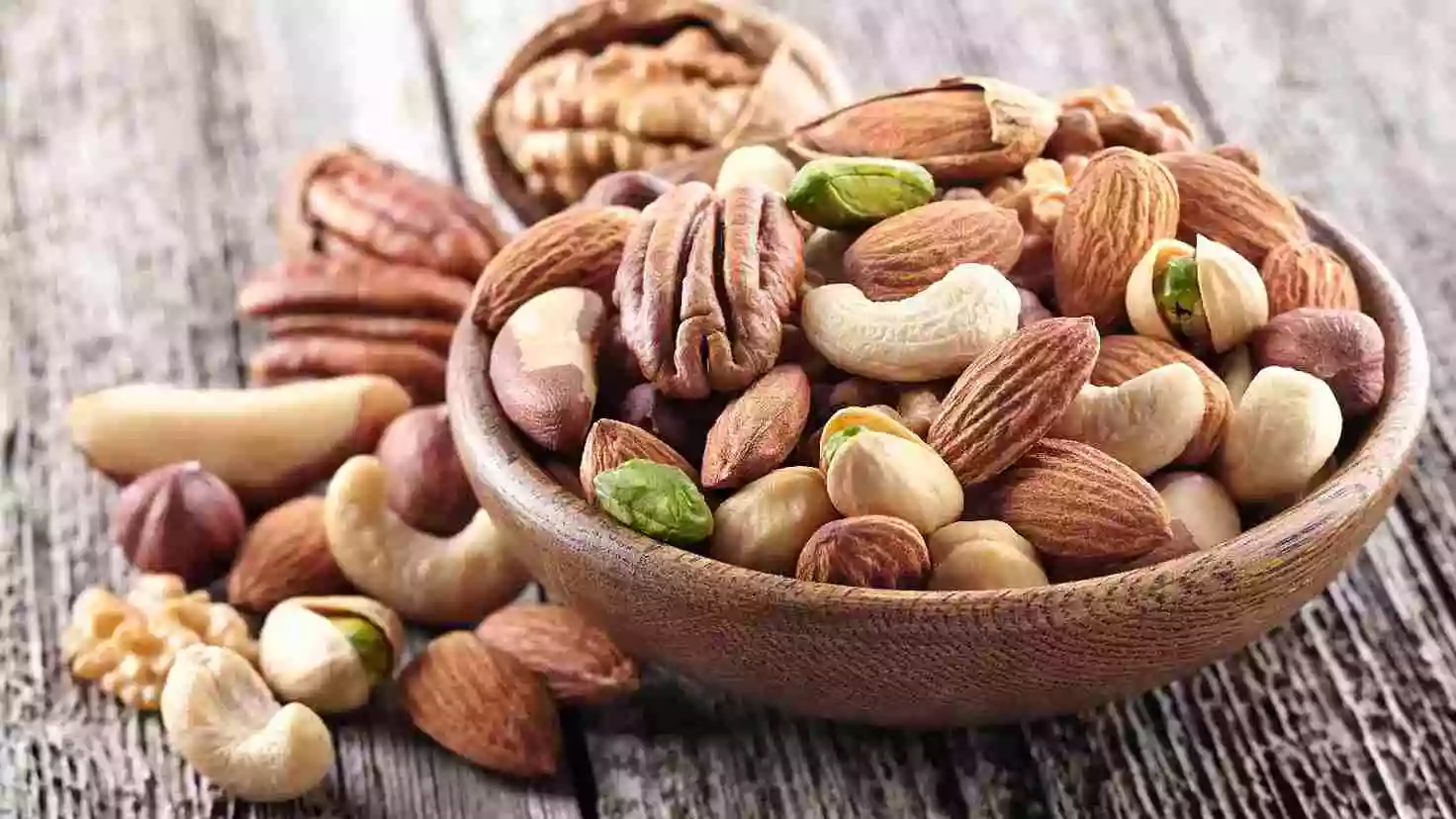
The first thing that might come to your mind when searching for high-protein vegetarian alternatives is nuts. Most nuts are high in protein and also high in healthy fats. This makes nuts an excellent choice for people who are trying to lose weight or eat healthier. Nuts are a great source of vegetarian protein.
When switching to a low-carb diet, you can opt for Macadamia nuts, Brazil nuts, walnuts, hazelnuts, peanuts, and almonds. Additionally, they’re tasty, easy to incorporate into meals and versatile. You can enjoy nuts in several ways, such as on their own as a snack, as part of a meal or added to baked goods. But the twist is that a few people are allergic to them.
2. Seeds
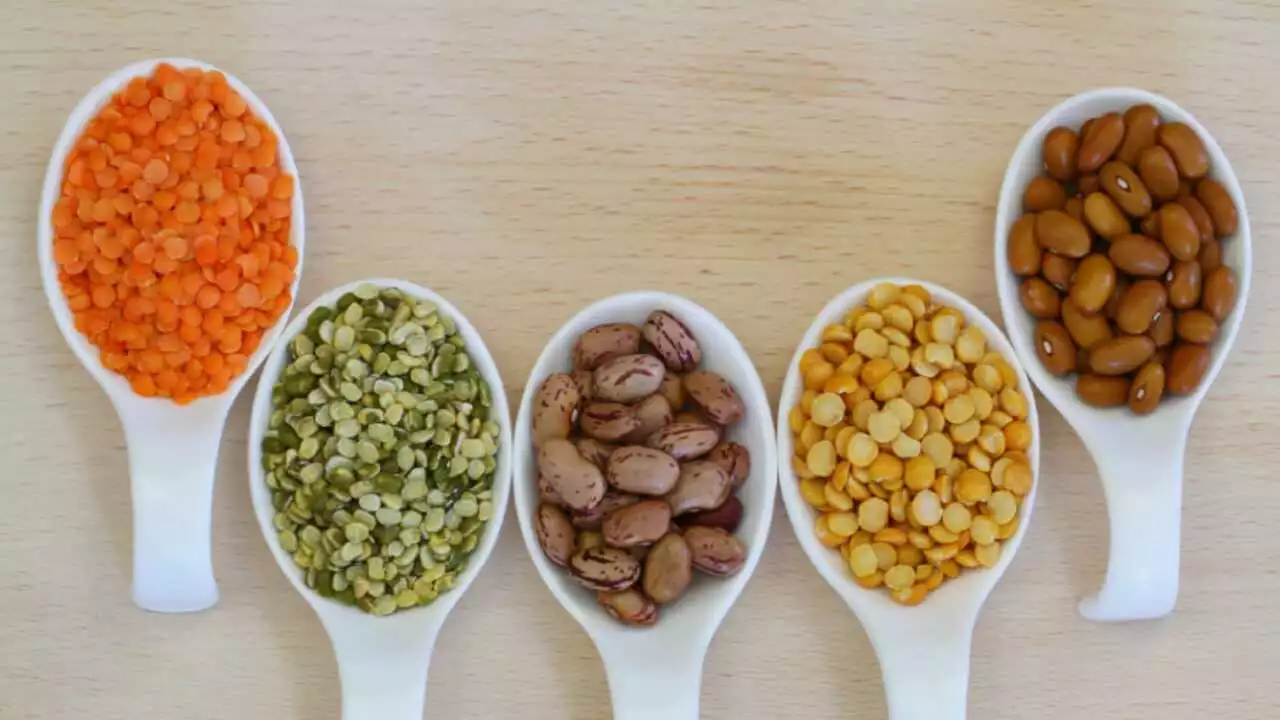
Seeds are another top choice for vegetarians looking to nibble on high-protein foods. Like nuts, seeds as well are high in protein and low in carbs. They’re also an excellent source of minerals, vitamins and fiber.
Like nuts, seeds are also quite flexible and will jazz up almost all salads, smoothies, and various other dishes. Their impact on the body is quite significant and can do much more than weight management and muscle gain support. Some popular types of seeds are:
- Chia seeds
- Hemp seeds
- Flax seeds
- Sesame seeds
- Sunflower seeds
3. Beans and Lentils
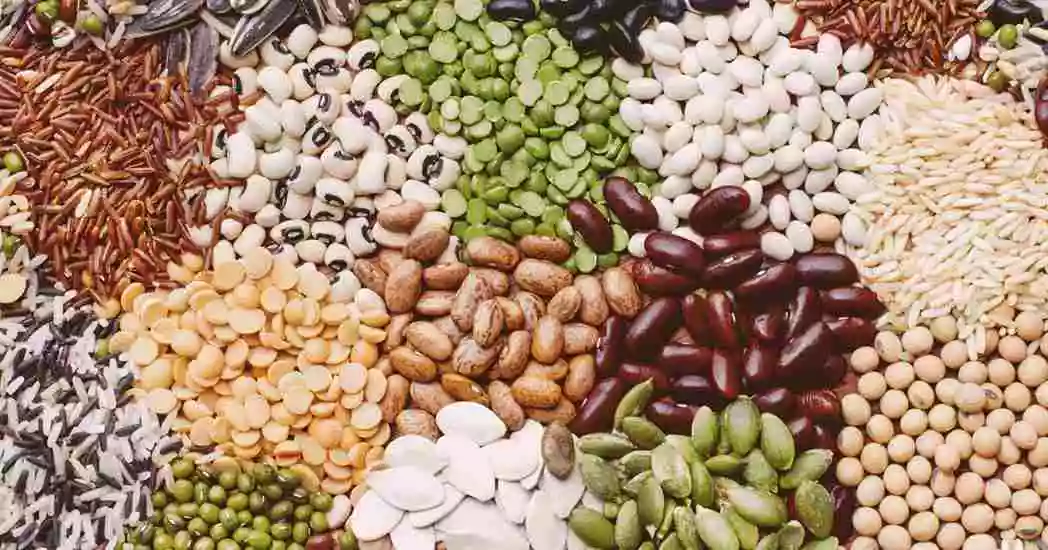
Beans and lentils are fiber-rich, nutrition-dense, mineral sources. This vegetarian protein goes from soups to salads and makes fantastic savory delicacies. They are known to lower cholesterol and are great for gut health. Some suggested choices are:
- Chickpeas
- Kidney beans
- Soybeans
- Peas
- Black beans
- Lentils of vivid kinds
Beans and lentils are super cheap and easy to cook, making them a top choice for anyone on a budget. They are easy to make a part of a vegetarian protein diet. Most people simply add beans to salads and other savory dishes, and lentils can be cooked in just about 10 mins in a pressure cooker.
4. Dairy Alternatives
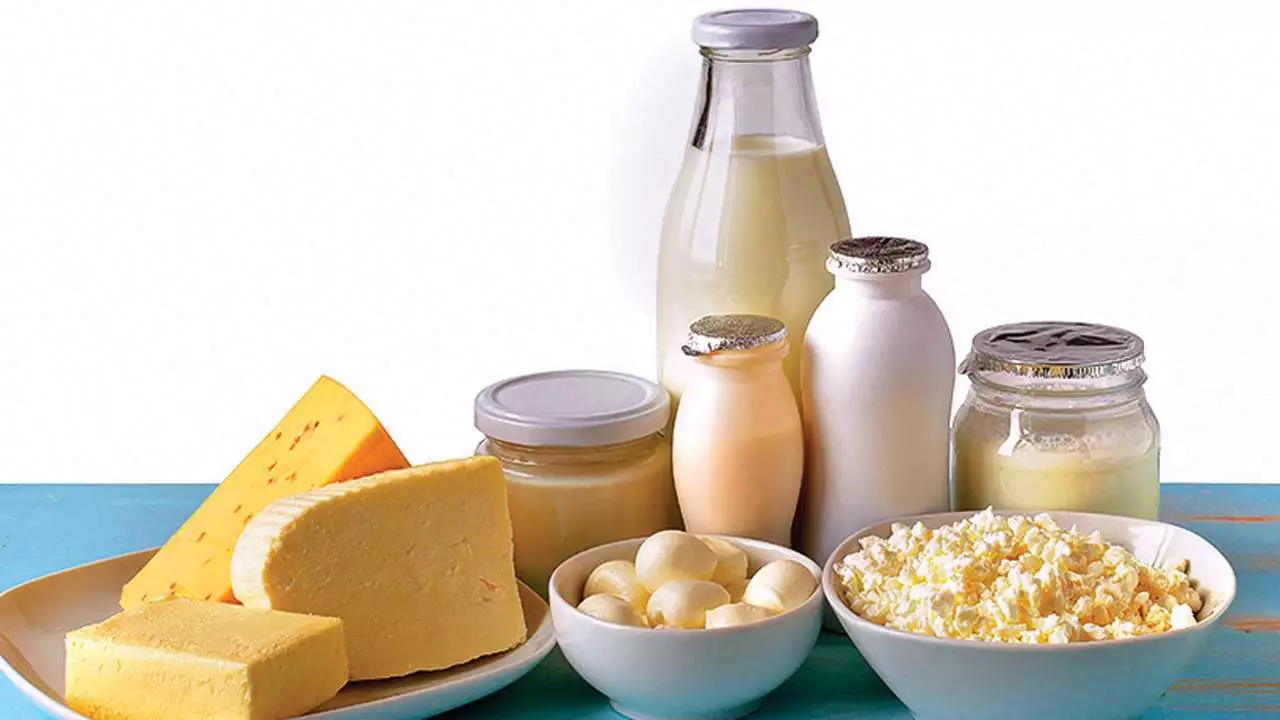
Diary is something we have been consuming since perhaps the beginning of time. Their high protein content is what makes them a go-to option for all muscle freaks and few athletes. They are a good calcium source and rich in Riboflavin, a vitamin B complex.
Milk, butter, cheese, cottage cheese, yogurt, curd, and others, are all world-renowned food alternatives. You can benefit from them without disturbing much of their natural consistency, such as adding spoonfuls of sugar. This is not a good choice for lactose-intolerant people.
5. Tofu
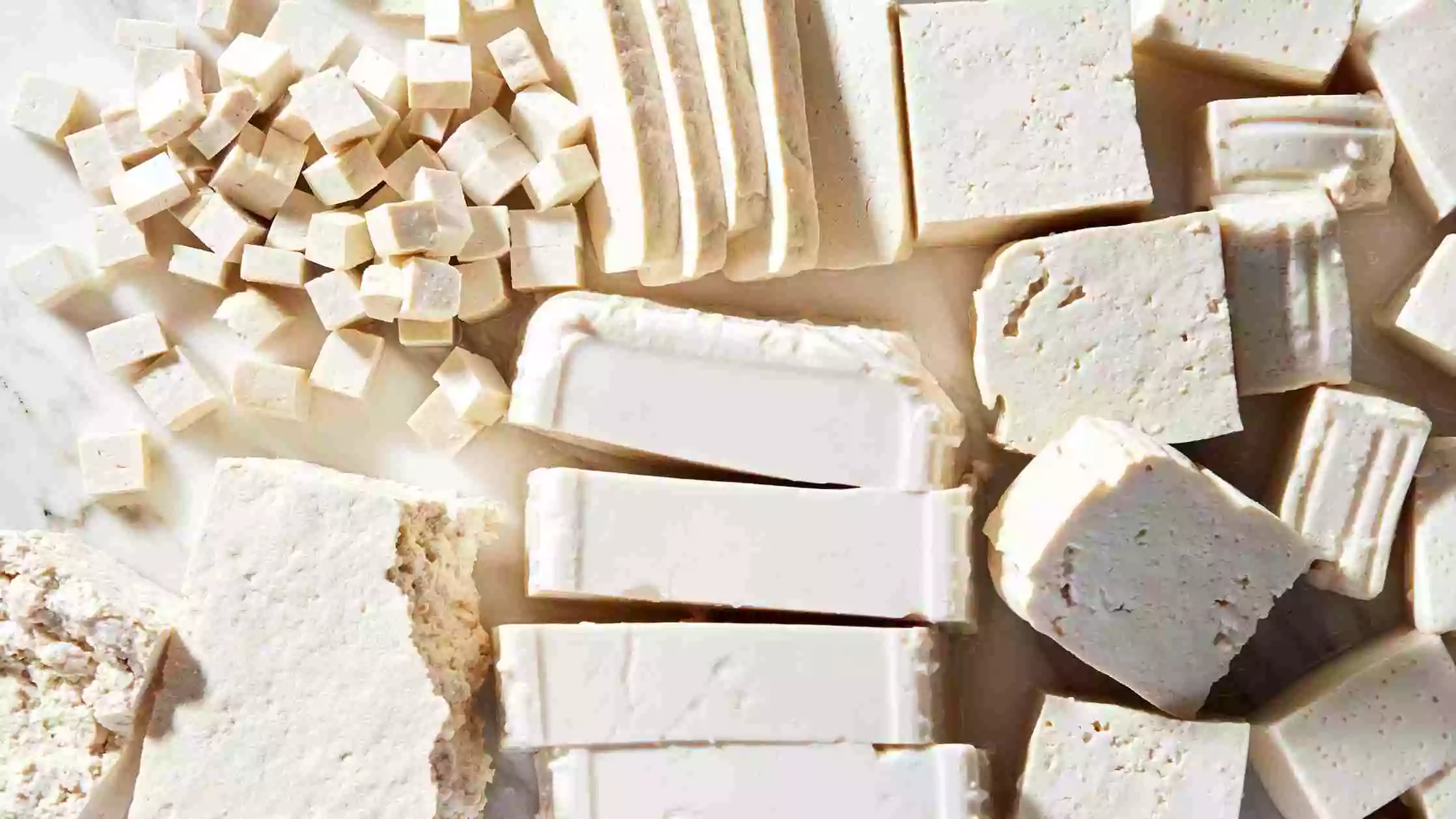
Tofu is one of the best high-protein and low-carb vegetarian foods. It’s high in protein and is made of soy milk, making it an excellent protein source for vegans or vegetarians. It’s also very versatile and easy to incorporate into a wide variety of meals. You can search for a million recipes that will show you the best ways to incorporate tofu into your regular meal plan.
It is soft, has a mild texture, and is widely popular in many Asian countries. Just saute it and mix it up with your salad, or put in a little effort to make vegan grilled tofu BBQ. Soy products like tofu, tempeh and soy protein isolate are rich protein options. Along with their long list of benefits, you can add them to enhance your regular-looking boring plate. They hardly take time to prep and are for sure finger-licking good.
Tasty and Easy High in Protein and Low in Carb Vegetarian Meal Ideas
It will not be easy if you’re looking to cut back on your carb intake. Finding taste in something healthy is a little challenging, though never impossible. You can experiment with different food combos and create a dish that is both healthy for your body and appealing to your taste buds.
People who work out or are trying to exceed in some particular sport will need a high-protein diet that is also low in carbs, more than anyone. This will help them develop muscle and strength rather than useless fat. These general dishes mentioned below are all rich, nutritious, and of course, delicious delicacies that are loved by all.
- Nuts and seeds snack protein bars
- Bean and lentil salad
- Oats bowl with various combos
- Chia seeds smoothie
- Bean and soy cheese baked pasta
- Indian Chila
- Quiche (Asparagus and mushroom)
- Vegetable Broth
- Tofu or cottage paneer infused with curry
- Sandwiches with healthy stuffing
- Cauliflower Mac and Cheese
- Fruit tart
- Pancakes with honey and blueberries or cherries
Other than these mouthwatering recipes, the internet is also loaded with all sorts of foods for all sorts of diets. You can also opt for supplements if you are worried about nutritional deficiencies or enhanced protein intake. Just ensure that you are well aware of what the supplement contains and that your doctor knows about it.
FAQ related to High-Protein and Low-Carb Vegetarian Foods
Why should I eat low-carb food?
Low-carb food helps people lose weight and significantly reduces harmful belly fat. Another reason why one should prefer low carbs diets is it helps you reduce your appetite, allows you to eat lower calories, etc. Low carbs diets also boost your overall health.
Is it possible to be a low-carb vegetarian?
As we all know, vegan and vegetarian diets are generally high in carbs, which include grains, starchy vegetables, bread, and fruits. But it is completely possible to follow a low-carb vegan or vegetarian diet.
Do oats have protein?
Oats can be considered the best source of protein which has high nutritional value. Apart from high protein content of 11–15 %, it also has a unique protein composition.
What food has no carbs and high protein?
If you are looking for low carbs food that has high protein, then check the following foods that you can include in your meals:
Nonstarchy vegetables
Fish and shellfish
Eggs
Poultry
Certain dairy
Seeds
Soy
Which fruit is highest in protein?
Guava
Avocado
Jackfruit
Kiwi
Apricot
Blackberries and Raspberries
Raisins
Conclusion: High-Protein and Low-Carb Vegetarian Foods
Vegetarians are often told to eat more protein because they don’t eat as much meat. This is true, but many people don’t realize that most vegetarian foods are high in protein too! Nuts, seeds, soy products, dairy items, etc., are exceptionally high in protein, making them excellent choices for vegetarians. You can even go for egg, as many consider it a vegetarian item. However, that is a debate that will go on for eternity.
But eggs are loaded with benefits and can be eaten in various ways. But if it does not suit you, do omit the whole idea. Beans, lentils and cheese alternatives also make good vegetarian protein choices. To help ensure you’re getting enough protein, try snacking on the above-mentioned food alternatives and related products throughout the day. But make sure you are not allergic to any of them. And also that your diet is well balanced, not just loaded with high protein or is carb deficient.





